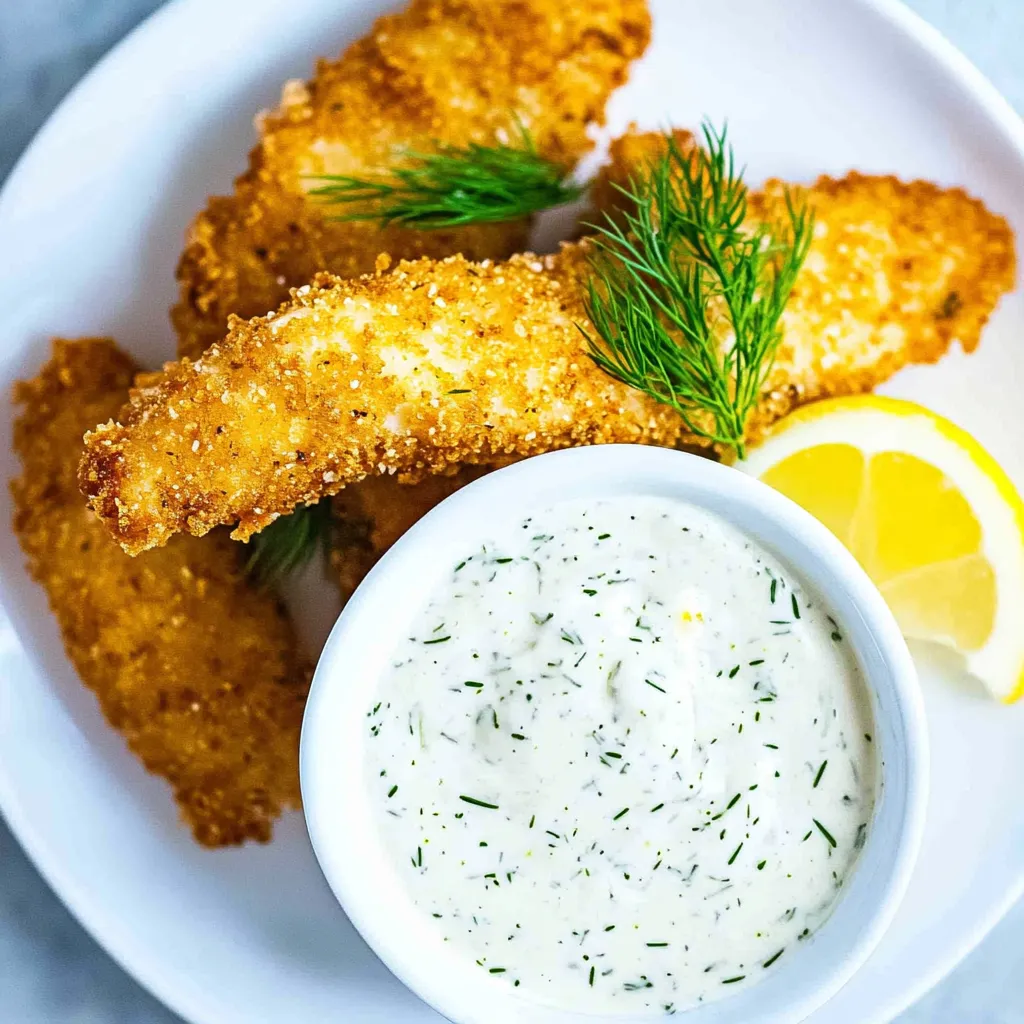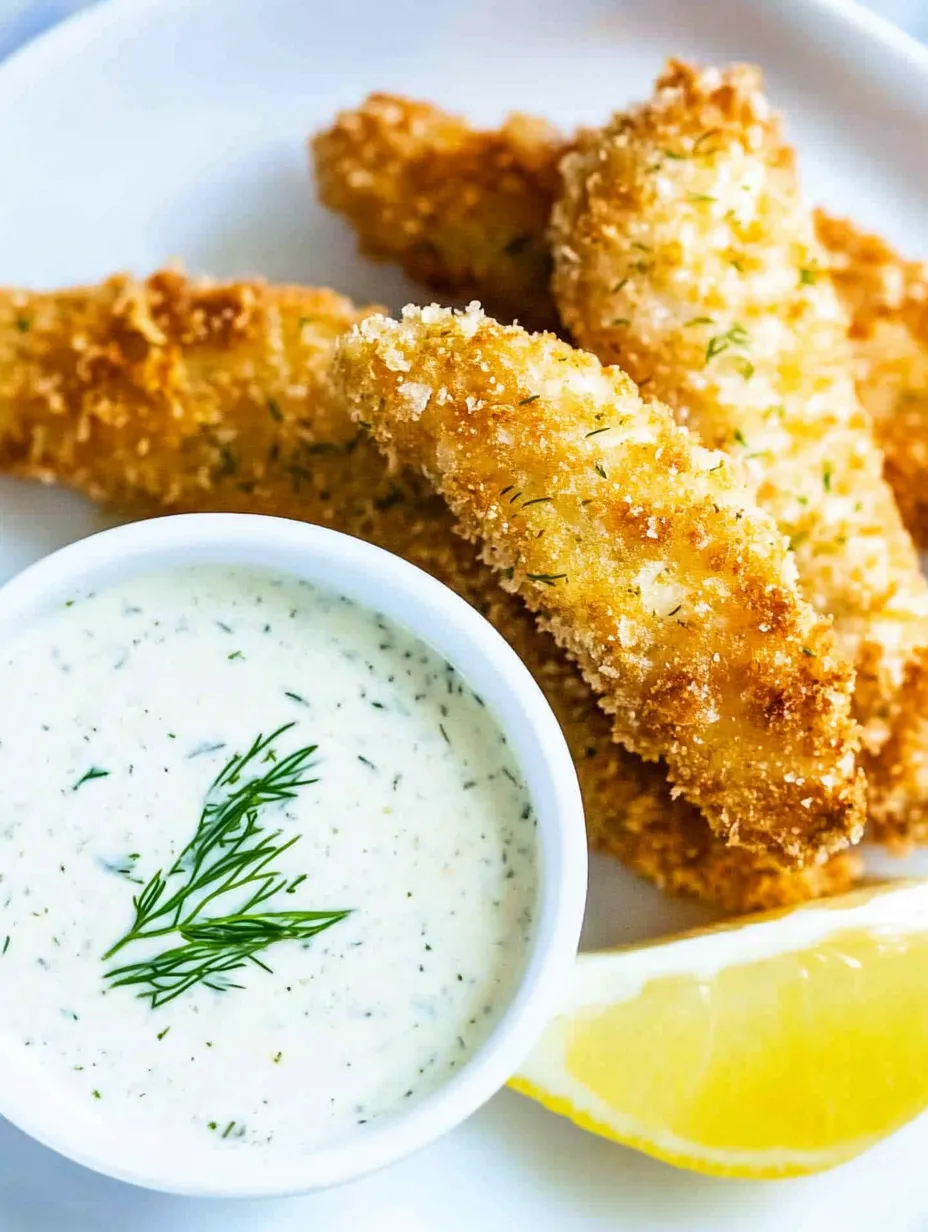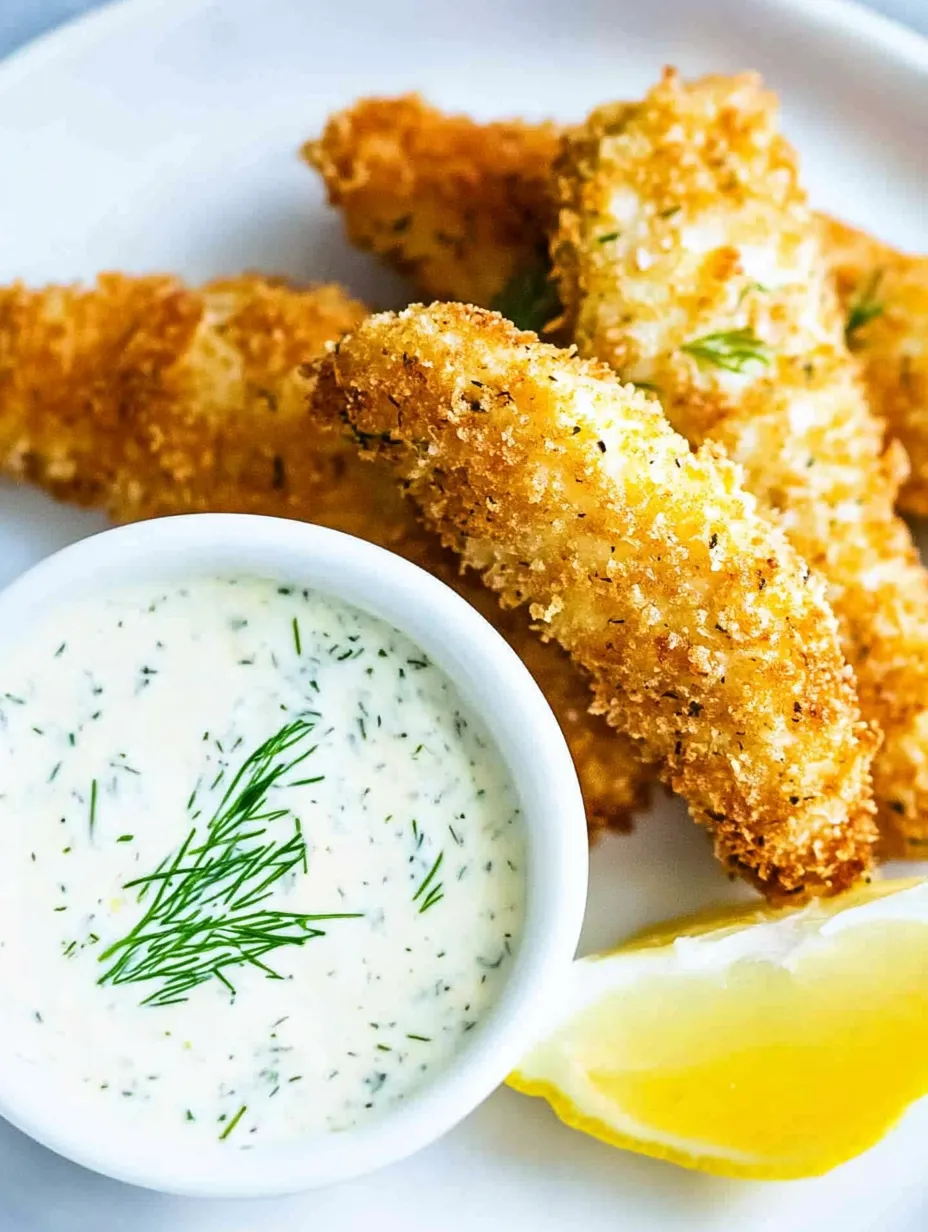 Save
Save
This creamy homemade tartar sauce transforms ordinary seafood into something extraordinary. Made with simple ingredients you likely already have, it delivers that perfect balance of tangy, briny flavor that store-bought versions can't match. Once you try this recipe, you'll never go back to the jarred stuff again.
I started making this tartar sauce when planning a fish fry for friends who are sauce connoisseurs. The first batch disappeared so quickly that I had to make more mid dinner. Now it's requested whenever seafood is on the menu at our house.
Ingredients
- 1/2 cup mayonnaise: the foundation of great tartar sauce use quality mayo for best results
- 1 small dill pickle: chopped very small about 3 tablespoons provides essential tangy crunch
- 1 tablespoon fresh lemon juice: brightens all the flavors use freshly squeezed for best results
- 1 tablespoon capers: chopped these tiny flavor bombs add briny depth that makes this sauce special
- 1 tablespoon chopped fresh dill: adds distinctive herbal notes that complement seafood perfectly
- 1/2 to 1 teaspoon Worcestershire sauce: provides subtle umami undertones adjust to taste
- 1/2 teaspoon Dijon mustard: adds complexity and helps emulsify the sauce
- Salt and freshly ground black pepper: seasoning is crucial to balance all flavors
Step-by-Step Instructions
- Combine Base Ingredients:
- Place mayonnaise in a small mixing bowl and add the chopped pickles, lemon juice, chopped capers, dill, Worcestershire sauce, and Dijon mustard. The order isn't critical, but starting with mayo creates a smooth base for incorporating everything else.
- Mix Thoroughly:
- Stir all ingredients until well blended and creamy. Take your time here to ensure everything is evenly distributed. The texture should be consistent with small pieces of pickle and capers visible throughout.
- Season and Taste:
- Add a pinch of salt and some freshly ground black pepper. Taste the sauce and adjust seasoning with additional lemon juice for more tang, salt for flavor enhancement, or pepper for complexity. Trust your palate here.
- Rest and Chill:
- For best flavor development, cover the bowl and refrigerate for at least 30 minutes before serving. This resting time allows all the flavors to meld together and creates a more cohesive sauce.

The capers are my secret weapon in this recipe. Most people expect pickles in tartar sauce, but the briny pop of capers adds an unexpected dimension that elevates this condiment from good to exceptional. My daughter, who claimed to hate tartar sauce, became an instant convert after trying this version with the capers included.
How to Customize Your Tartar Sauce
Tartar sauce is wonderfully adaptable to personal preferences. For a spicier version, add a dash of hot sauce or finely minced jalapeño. If you prefer a sweeter profile, incorporate a teaspoon of sweet pickle relish instead of dill pickles. For extra tanginess, increase the lemon juice or add a splash of white vinegar. The beauty of making it yourself is that you can adjust each element until it's exactly how you like it.
Storage and Make-Ahead Tips
This tartar sauce keeps beautifully in the refrigerator for up to one week when stored in an airtight container. The flavor actually deepens and improves after the first day as the ingredients have more time to meld. I often make a double batch on weekends to have on hand for quick weeknight seafood dinners. Just give it a quick stir before serving if any separation occurs.
Perfect Pairings
While traditionally served with fish and chips, this versatile sauce elevates numerous dishes. Try it with salmon patties, as a spread on fish sandwiches, or even as a dipping sauce for roasted vegetables. It makes an excellent topping for baked potatoes with smoked fish, and a dollop on seafood chowder adds wonderful richness. We've even used it as a replacement for mayonnaise in tuna salad with delicious results.

Frequently Asked Cooking Questions
- → Can I make tartar sauce without capers?
Yes, while capers contribute a distinctive briny flavor, the sauce remains delicious without them. You might want to add extra dill pickles or a small amount of pickle juice to maintain the tangy profile.
- → How long does homemade tartar sauce last?
When stored in an airtight container in the refrigerator, homemade tartar sauce maintains its freshness and flavor for up to one week. For optimal taste, consume within this timeframe.
- → Can I use dried herbs instead of fresh?
Absolutely! Substitute 1 teaspoon of dried dill for the 1 tablespoon of fresh dill. Remember that dried herbs have more concentrated flavor, so use about one-third the amount of fresh herbs called for.
- → What dishes pair well with tartar sauce?
Tartar sauce classically accompanies fish and chips, fried seafood, fish cakes, and crab cakes. It also works wonderfully with grilled fish, as a sandwich spread, or even as a dip for fresh vegetables.
- → Can I make tartar sauce without mayonnaise?
Yes, you can substitute Greek yogurt or sour cream for a lighter version, though the flavor profile will change slightly. For a vegan option, use plant-based mayonnaise alternatives.
- → Why should I refrigerate tartar sauce before serving?
The 30-minute refrigeration period allows the flavors to meld together, creating a more cohesive and balanced taste. This resting time enhances the overall flavor profile of the sauce.
